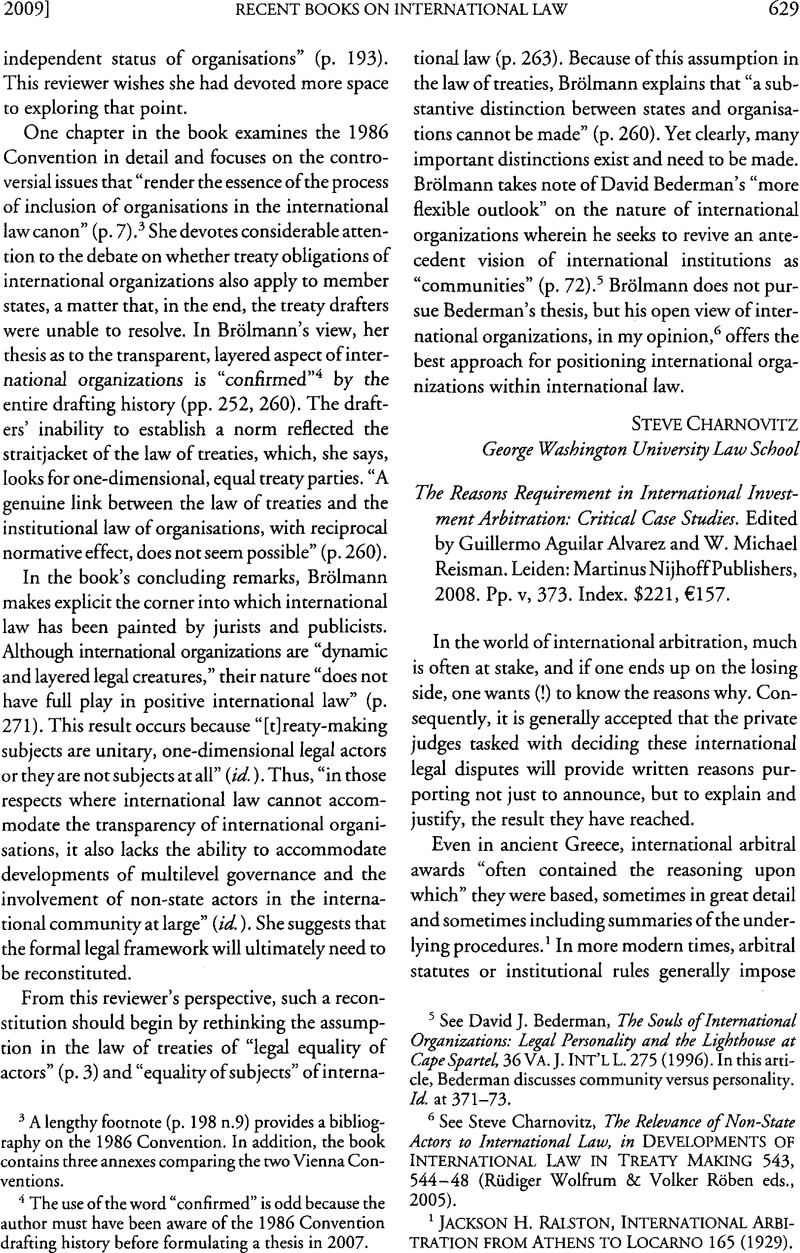No CrossRef data available.
Published online by Cambridge University Press: 27 February 2017

1 Jackson, H. Ralston International Arbitration from Athens to Locarno 165 (1929).Google Scholar
2 On the other hand, under the American Arbitration Association’s rules (no. 42) for domestic commercial arbitrations, the “arbitrator need not render a reasoned award unless the parties request such an award in writing prior to appointment of the arbitrator or unless the arbitrator determines that a reasoned award is appropriate.”
3 Two cases were decided under the ICSID Convention’s “Additional Facility” rules, which are not subject to ICSID annulment procedures; three were decided under UNCITRAL (ad hoc) rules; and one was decided under the rules of the Swedish Chamber of Commerce.
4 See, e.g., Ellen, P. April The Law of the Word: Dictionary Shopping in theSupreme Court , 30 Ariz. St. L.J. 275 (1998).Google Scholar
5 W. Michael, Reisman Systems of Control in International Adjudication and Arbitration (1992).Google Scholar
6 Mitchel de, S.-O.-L’E. Lasser, Judicial Deliberations: A Comparative Analysis of Judicial Transparency and Legitimacy (2004)Google Scholar. Of course, this is not to say that the French system is free from thoughtful criticism. See, e.g., Adolphe, Touffait & André, Tunc Pour une motivation plus explicite des decisions de justice notamment de celles de la cour de cassation , 72 Revue Trimestrielle de Droit Civil 487 (1974).Google Scholar
7 John, P. Dawson The Oracles of the Law (1968).Google Scholar
8 Frederick, Schauer Giving Reasons , 47 Stan. L. Rev. 633, 641 (1995)Google Scholar
9 Id. at 656.
10 A second danger is that parties will abandon ICSID in favor of alternative systems, like UNCITRAL or International Chamber of Commerce arbitration, that do not impose a burdensome reasons requirement enforced by annulment procedures. Indeed, at a panel on international investment law at the American Society of International Law’s 2009 annual meeting, a number of panel participants, who work at the world’s top law firms, said that they now advise their clients that UNCITRAL arbitration may be preferable to ICSID arbitration precisely because of the delay and uncertainty caused by ICSID’s annulment process. For ICSID to adopt the authors’ robust reasons requirement would, in a sense, be to commit institutional suicide.
11 Joel, Levin How Judges Reason: the Logic of Adjudication 253 (1992)Google Scholar (paragraph break eliminated).
12 This incredible story is documented in David Schneiderman’s working paper, “Judicial Politics and International Investment Arbitration: Seeking an Explanation for Conflicting Outcomes” (n.d.), at http://works.bepress.eom/david_schneiderman/l/.
13 As Reisman has argued elsewhere, perhaps ICSID ad hoc committees should adopt a more relaxed reasons requirement when it appears that the award embodies an especially delicate “compromise.” Reisman, supra note 5, at 95.1 am suggesting here that a similar principle might apply to academic critics of allegedly poorly reasoned awards.
14 I would recommend, in particular, Gus Van, Harten Investment Treaty Arbitration and Public Law (2007)Google Scholar, reviewed by José Alvarez in the October 2008 issue of this Journal, 102 AJIL 909 (2008).